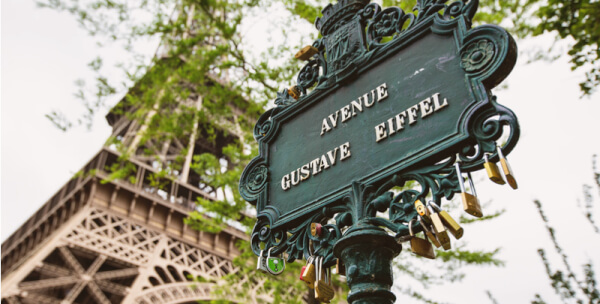How to buy a car in France: A complete guide
If you’re moving to France, one of the first things you’ll need to consider is how you’re going to get around. While many of the major metropolitan areas have...

Paris is one of the most beautiful and romantic destinations in the world. Known for excellent cuisine, incredible shopping, endless parks and gardens, and a general joie de vivre; the desire to move to and work in the French city is shared by many. Not only does working in Paris give you access to the city, but also the RER service can whisk you away to many of France’s enchanting villages, and the Eurostar takes you swiftly and cheaply to London. Plus, the central European location makes it an easy center for exploring other exciting destinations on the weekends and holidays.
According to the last census, nearly 6 million people work in the Paris metropolitan area; many of whom are international employees working for multinational companies based in the city. Working for a non-French company in Paris can be the best way to get a job in the city for a non-Parisian. Otherwise, finding a position can be fairly difficult. Despite the fact that Paris is home to a wide range of businesses, and nearly 20 Fortune Global 500 companies are headquartered there, there can still be some hurdles finding a job in the stagnant French economy. For the determined, however, it's possible.
So how do you get started? This guide will walk you through 8 steps you need to follow to give yourself the best chance of landing a job in Paris.
Well, at least some French. While in many European cities it’s possible to live and work without speaking a word of the local language, the case isn't the same in Paris. French companies usually look for individuals who have firm grasp of the language, and even finding a job in a pub can be impossible without some French speaking skills.
So how do you get started? It’s easy enough to lock down the basics with smartphone apps like Duolingo, Memrise, Babbel and Busuu. If you’re already an intermediate French speaker, it’s worth taking formal classes or getting a private tutor to get your language skills up to speed. Finding an online tutor is easy with sites like italki, Skype Language, Live Lingua, or Tutor.com.
In English, the word résumé translates roughly to “summary”. In many places in the world, CVs and résumés have become largely interchangeable, wherein both the short-form resume and the long-form curriculum vitae aren't restricted by length; either can be 1, 5, 10, or however many pages you need.
In Paris, however, résumé should still be viewed in the traditional sense: a summary, no longer than a single page for junior positions, or two pages maximum for senior positions. Longer résumés are often thrown out without so much as a glance. Make sure you're concise, avoid buzzwords, and only list your most relevant experience for the position.
It’s also fairly common in France to include your picture at the top of your résumé document. However, if you don’t have a professional photo of yourself, it’s ok to not include one. Having no picture will serve you better than a selfie or a shot of you from vacation or at the bar.
Lastly, and very importantly, check your spelling. Every time you reference the document, make sure to use the correct French grammar with l’accent grave in place above both E’s in résumé.
| Create your resume by choosing the best resume format from our free resume templates and customize it with your history. |
|---|
While there are many industries represented in Paris, there are some that are significantly more prevalent than others. While it’s not impossible to find jobs outside of Paris’s largest industries, it can certainly be more difficult.
If you’re looking for work in Paris, professionals working in the following sectors are most likely to find open positions:
Banking
Insurance
Automobiles
Energy
Food/ Drugstores
Luxury goods / Fashion/ Cosmetics
IT and Telecomm
Media
Entertainment
Transportation
Landing a job in Paris may be difficult, but searching for openings online certainly isn’t. A huge number of websites are dedicated to helping locals and expats find positions in the French city: while the largest employment sites like LinkedIn, Monster, and Indeed house many listings; these smaller, Paris-oriented sites are also good places to start.
Emplois-Verts - for green jobs and jobs in the environmental sector
L’Etudiant - for placing students and recent graduates in jobs and internships
The Local - specifically listing English-language jobs
Keljob - for a huge list of openings across industries
Cadre Emploi - for online job searches and finding a recruiter
Because finding a job in Paris can be difficult, working with a professional recruiter can be massively helpful in your search. There are numerous agencies around the city to choose from, however some of the best reviewed online include:
Adecco - for jobs across industries
Ples Convergence - for telecom, IT, and media jobs
Job Transport - for jobs in transportation
Modelor -for jobs in the fashion and luxury goods sector
In such a difficult job market, knowing other professionals in Paris can be make or break in your efforts to find a job.
If you’re able to visit the city while you’re looking for jobs, in-person networking is always best. A good place to start can be local expat communities. These can offer many professional networking events and also the opportunity to make friends in Paris in a more casual setting. One of the biggest expat groups can be found through Internations, however other groups, like Expats Paris, are quickly growing.
Reaching out to peers in your industry through sites such as LinkedIn and Xing can help you get advice, leads on openings, and a leg up as you pursue your job search.
Interviewing in France can feel a little different to other parts of the world. There are some key cultural norms you should adhere to when meeting with your potential employer. Beyond normal interview necessities, like being on time and doing your homework, the following tips are important to keep in mind.
Address your interviewer formally. In Paris it’s important to use the title “Madame or Monsieur + Last name” until you’re invited to do otherwise
Vous, not tu. Much like the Madame or Monsieur rule, using the formal vous form is a must-do until your interviewer indicates you can switch to tu.
Avoid la bise. Greeting friends, acquaintances, or pretty much anyone in France typically involves two kisses: one on each cheek (known as la bise). While this practice is nearly universal outside of business, greeting your interviewer should be done with a firm handshake instead of kisses.
Don’t be surprised by personal questions. In France it’s not uncommon to be asked your marital status, whether you have children, whether you’re pregnant, or even whether you’re planning to be in the near future.
If you’re from an EEU/EEA country, you don’t need to get a work or residence visa in order to start your job in Paris. If you’re from outside those regions, however, you’ll need both.
Your applications for your work visa and residence visa should be completed at the same time, as they’re interdependent. It’s important to have obtained a job before you apply, as your employer will act as your sponsor in the visa process.
The application can be completed at your local embassy, and you’ll need to present your passport and other important documentation, like your job offer from your employer. If all goes well, you’ll then be issued a temporary residency permit, or carte de séjour temporaire (CST), which allows you to work in Paris.
If you’ve found a job and obtained a visa, the next step is moving to Paris. Living in this exciting city can be a dream; finding an apartment there, not so much. Much like New York, San Francisco, or London, Paris’s rental market is fairly saturated, and finding an affordable apartment can be a struggle. For ideas to help you move, check out The Local’s Top 10 Tips for Moving To Paris. This includes great advice such as checking local boards instead of just online, and finding sublets instead of working through an agency.
Once you’re in Paris, you’ll likely have the need to convert your money to or from Euros at some point. If you plan to open a bank account there or know someone with a French bank account, consider using Wise in order to get the fairest deal possible. Not only does Wise use the real mid-market exchange rate to convert your money, but your money is received and sent via local bank transfers in both your home country and in France. This means you can save on unpleasant international banking fees.
Finally, always remember to have fun during this next adventure in your life.
Bon chance!
*Please see terms of use and product availability for your region or visit Wise fees and pricing for the most up to date pricing and fee information.
This publication is provided for general information purposes and does not constitute legal, tax or other professional advice from Wise Payments Limited or its subsidiaries and its affiliates, and it is not intended as a substitute for obtaining advice from a financial advisor or any other professional.
We make no representations, warranties or guarantees, whether expressed or implied, that the content in the publication is accurate, complete or up to date.

If you’re moving to France, one of the first things you’ll need to consider is how you’re going to get around. While many of the major metropolitan areas have...

France is known for its universal and excellent standard of healthcare. It is regularly rated as the top healthcare system in the world. This is great news...

Many people dream of moving to France. If you’re realising this dream, you could be moving for a job, an educational program, or simply pursuing an...

Recently engaged or dreaming of a destination wedding? With exquisite food, irresistible wine and breathtaking views, there really is no place like France....

There are plenty of reasons to move to France as an expat. Maybe you’re planning on pursing your next career step in one of the bigger cities. Or studying in...

Many people are drawn to France to live, work and enjoy the mix of rich culture and history. France has a large expat community, with some 19% of the...